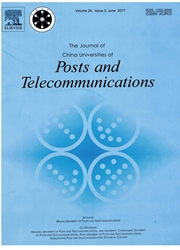

 中文摘要:
中文摘要:
安全最近是格子系统的焦点。作为一种工具,格子安全基础结构(GSI ) 等等提供认证和授权服务。这些机制主要属于客观因素,它没满足安全的需要。作为主观因素,信任模型在安全地里起一个重要作用。为格子的新二水平的名声信任体系结构被给大部分减少系统管理的费用,在哪个在虚拟组织(VO ) 之中的信任关系在域信任管理器(DTM ) 而非资源节点(RN ) 上被造。例如拿内部域的信任繁殖,信任模型被把全球名声和每 recommender 的主观信任概念集成到综合改进最后的信任价值。而且在格子开始与可靠实体交往以前,预先测量计划被介绍过滤不信的实体,推进,它基于精确性和诚实。试验性的结果显示模型能更好阻止恶意的攻击。
 英文摘要:
英文摘要:
Security has been the focus of grid systems recently. As a kind of tool, grid security infrastructure (GSI) provides the authentication and authorization services and so on. These mechanisms mostly belong to the objective factors, which have not met the needs of security. As the subjective factor, trust model plays an important role in security field. A new two-level reputation trust architecture for grid is given to reduce the costs of system management largely, in which trust relationships amongst virtual organizations (VOs) are built on domain trust managers (DTMs) rather than resource nodes (RNs). Taking inter-domain trust propagation for example, trust model is improved by integrating global reputation and the subjective trust concept of each recommender into synthesizing final trust value. Moreover, before the grid starts to interact with the trustworthy entities, the pre-measure scheme is presented to filter distrustful entities further, which is based on accuracy and honesty. Experimental results indicate that the model can prevent from the malicious attacks better.
 同期刊论文项目
同期刊论文项目
 同项目期刊论文
同项目期刊论文
 Design and Realization of Software for Guard Against DDoS Based on Self_similar and Optimization Fil
Design and Realization of Software for Guard Against DDoS Based on Self_similar and Optimization Fil The study on communication model between heterogeneous operation systems for a wireless sensor netwo
The study on communication model between heterogeneous operation systems for a wireless sensor netwo An adaptive remeshing technique based on hierarchical error estimates for simulation of semiconducto
An adaptive remeshing technique based on hierarchical error estimates for simulation of semiconducto 期刊信息
期刊信息
